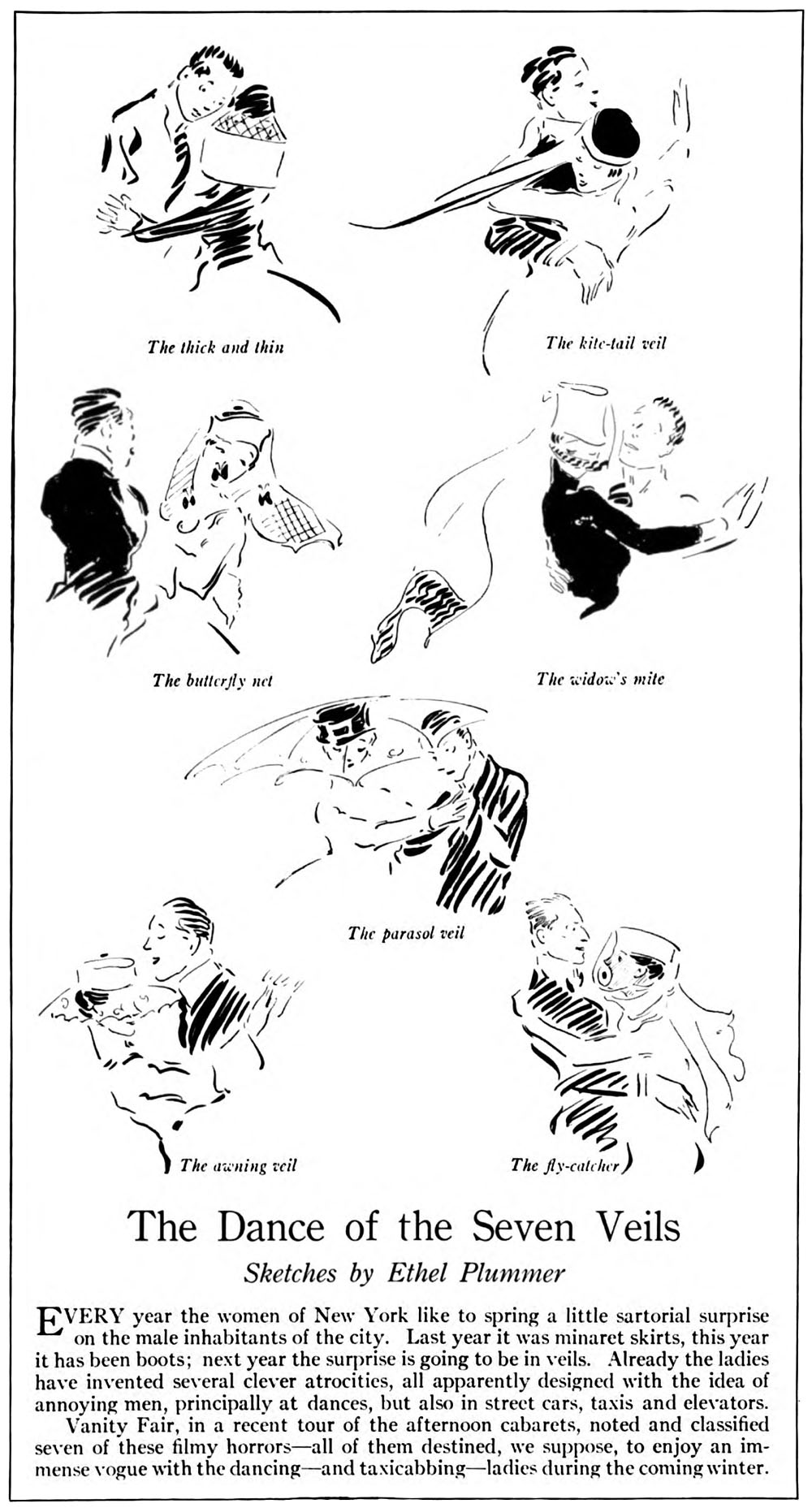Vanity Fair, November 1915
THE HABIT OF PICKING ON NEW YORK
A Mild Protest by P. G. Wodehouse
ONE of these days someone will found the S.P.C.N.Y.,—the Society for the Prevention of Cruelty to New York. But until that time arrives it seems as if nothing would prevent the stranger within our gates from administering a farewell kick at the metropolis as he shakes the dust of it from his departing feet.
Lately, the entire population of these United States appears to have taken the thing up, and one cannot open a paper without finding some modern Juvenal in the act of knocking New York down and stamping on it. Mrs. Helen van Campen (Helen Green, of blessed gifts and memories) is the latest writer to commit mayhem on our unoffending city.
She prefers Alaska, and does not care who knows it.
Mrs. Van Campen bases her criticism on the theory that the population of New York are a set of effete worms, while in Alaska, every man is a Galahad and every woman is like the heroine of a three-volume novel.
THERE is no defense against these distant visitors. They have their own system of reasoning, and it is useless to try to get them to adopt any other. They overhear, in a restaurant, a man bullying a waiter. Down it goes in the note-book. “In the restaurants of New York it is the custom to treat the waiters like dogs. New Yorkers never speak civilly to a waiter. How different in Jayville, Neb., where a waiter is more like a brother than a mere acquaintance.”
HITHERTO New York has adopted the meekly accepting rôle, but the S.P.C.N.Y. will alter all that. Its funds will be large, and its commissioners will journey north, south, east and west, showing up a lot of these saintly settlements on the edge of the map. They will penetrate Alaska, and report to Helen Green that a certain population of the inhabitants are burdened with human failings, just as the inhabitants of New York are.
Those will be great days.
To the resident New Yorker, the bitterness of these attacks lies in the fact that the aspect of the city usually criticised by the out-of-town satirist is the one created by out-of-town demand and supported, for the most part, by out-of-town money. The first thing the visitor does is to plunge energetically into the all-night-cabaret zone, and, when he returns home with a headache, he works off his spleen and his headache by writing articles attacking it.
The logic of the thing is all wrong. On his own showing, New York gave him a great time and relieved him of most of his money. As he came to New York to spend money and have a great time, the conclusion one comes to is that New York did its share satisfactorily and deserves some credit for doing it. It would be different if someone went away from the city and broke into print with a violent attack on the Tenderloin for being dull, and prosy, and economical, and respectable.
The country critic comes to New York, puts up at a hotel within a biscuit-throw of Times Square, stays out every night till the small hours, and then goes away and says that this is an awful place where nobody ever goes to bed.
If the next provincial who intends visiting us for the sake of peace and quiet will communicate with us before he starts, we will give him the addresses of a dozen hotels where peace and quiet may be obtained.
All-night cabarets may be sinful, but it is not yet compulsory to attend them.
OF course the chief difficulty in the path of the S.P.C.N.Y. is going to be that in defending our virgin city against all this sort of guerilla warfare, it is going to be so hard to hit back. In the old days, when the issue was broad and simple and the point in dispute was the alleged inferiority of New York to London, it was easy to put up a satisfactory fight. If London satirized New York’s partiality for ice-water, New York could get back with something pointed about the Englishman’s afternoon tea.
But what is one going to do about Alaska? Personally we know nothing of the tea, fogs, and bath tubs of that proud territory. For all we know, they may have Esquimo cabarets there, with blubber on the toast to eat, and the Walrus Roll, or one-step. If they have, we certainly mean to take them in—and criticise them freely.

 Madame Eulalie’s Rare Plums
Madame Eulalie’s Rare Plums